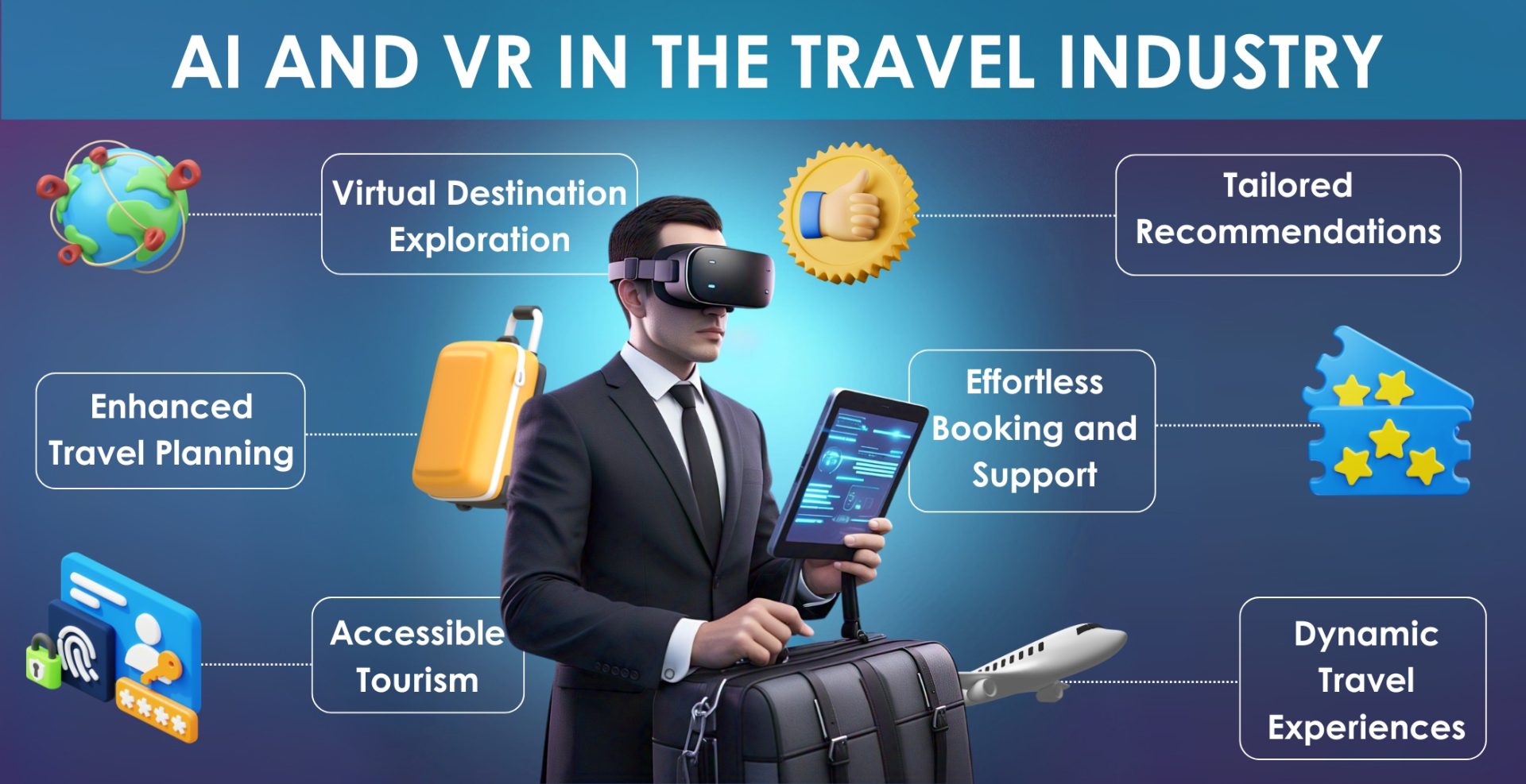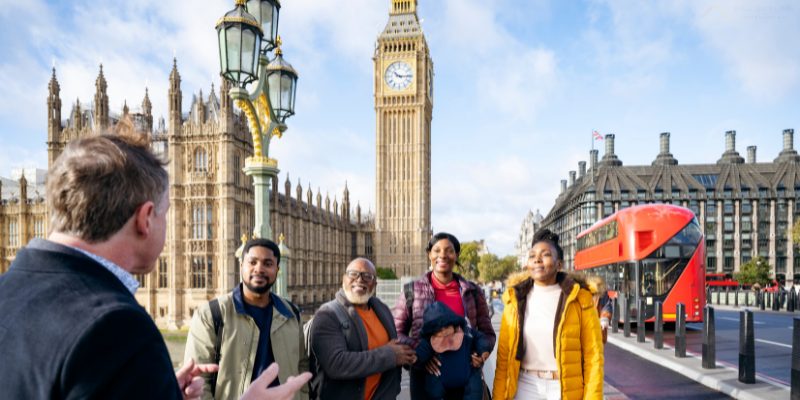Intrduction
Globally, the travel sector is going through some major transformations, both factually and digitally. We are fortunate to live in a time when we can plan a long trip with few clicks, pay digitally, book a cab from the phone, walk through the airport with biometric and facial recognition, receiving personalized itineraries with things to do and see in a particular location all this while also keeping sure to offset carbon footprint. Few years back this was all a dream, however, today we are living that dream. Explore how emerging trends and innovations are shaping The Future of Customer Experience in Travel.
As per Statista report on Travel & Tourism – United Kingdom 2025, the United Kingdom’s Travel & Tourism market is anticipated to achieve a revenue of US$42.11bn. Also, the industry is expected to have a market volume of US$46.68bn by 2029.
The UK travel sector is also in the progression phase. Customers’ expectations are exceeded, and travel companies also go the extra mile to offer seamless, flawless, brilliant, and tailored experiences. Also, travellers today wish to have smarter, swifter, and more sustainable journeys.
And this leads to a CX revolution. Customer journey is enhanced by deploying AI-driven support, hyper-personalisation, and new technology.
According to the World Travel & Tourism Council article Invest Now or Pay the Price: UK Tourism Losing its Global Position: the UK’s Travel & Tourism sector contributed $235.6 bn to the UK economy in 2024.
1. Hyper-Personalization: Your travel plans, Your Way
Travel is no longer a one-size-fits-all venture. A tailored experience is being demanded by travellers, and the brands in the UK are offering services that are based on hyper-personalization. AI and data analytics are deployed to plan itineraries, recommend tailored activities, and suggest real-time adjustments based on traveller preferences.
As per the Forbes article Travel Trends Report 2025 Hyper-Personalisation, global customization and personalization in the travel market are predicted to reach US$620.71 million by 2032 .
Interactive Insight:
Picture booking a looking weekend getaway receiving personalized local food market and activities customized for you and your family. How fantastic it sounds!
Deep dive:
Machine learning algorithms are leveraged to understand a customer’s choices and preferences. Every section of the journey is now customized, whether suggesting a particular airline, seat, local festival, costume, or sightseeing. For example, Expedia a travel app uses customer behaviour patterns to modify search results.
2. Seamless Digital Experiences: From Clicking for booking to Take-off
What we desire most while traveling is convenience. However, the onset of digitization has made things frictionless and seamless, from booking platforms to check-ins. Investment in self-service options and biometric and mobile-first experiences is being done by UK travel companies.
Interactive Insight:
The new norm at major UK airports is the facial recognition-based fast-track system, which is being loved by travellers. As it’s fast and convenient!
Deep dive:
As per article of Airport Industry-News UK article London Airports Trial New eGate Regulations for Children Aged 10 and Up London Heathrow, Gatwick, and Stansted Airport are trailing the use of eGates for children aged 12 and up to reduce delays for families with younger children .
Sustainability at the Forefront
As per RSM insights on Hotels, travel and tourism industry outlook 2025, 36% travellers said they would spend more on environmentally friendly hotel choices. Also, 2% of customers agreed that their travel plans are moved by their impact on the environment.
With the rise in awareness regarding climate change Eco-conscious travel has become quite relevant. As per the World Economic Forum’s report on the Survey of travellers, 76% want more sustainable options, and 76% of respondents stated that they want to travel sustainably .
Some of the initiatives adopted by, UK travel brands are:
- Paperless travels
- Sustainable accommodations
- Carbon offset plans
Interactive Insight:
Planning and carrying cutlery and cups in bags to avoid paper and plastic disposable. You truly feel like a climate warrior with these small but impactful efforts.
Deep dive:
In efforts to reduce carbon emissions, investment in sustainable aviation fuel is being made by companies like easyJet and British Airways. Also, reward programs are being launched for travellers choosing sustainable options.
3. AI-Powered Customer Support
Let’s accept this: none of us liked holding our phones and listening to that monotonous music. And now AI-driven customer support, through virtual assistants has solved our problem, they are changing the way how inquiries were handled previously. With 24/7 support, prompt response and proactive problem-solving, these tools are proving to be game changers.
As per nrg report How AI could revolutionize travel, 49% of travelers who used AI to assist them in planning a trip stated that they found it to be a “very effective” tool
Interactive Insight:
When rebooking a flight, it might be possible that next time, a virtual assistant may offer you a preferred time and seat and settle the booking in a few seconds. Also, without any human involvement.
Deep dive:
Natural language processing (NLP) powered chatbots and virtual assistants are efficiently handling intricate customer requirements. AI is deployed by organisations like TUI and Virgin Atlantic to handle disruptions, travel updates and bookings. These tools resolve the issues swiftly and also cut operational costs.
4. Immersive Travel Planning with AR & VR
Augmented Reality (AR) and Virtual Reality (VR) have made it possible to get a vibe of the destination before landing there. Virtual hotel tours and immersive previews of major attractions and shopping spots are being offered by UK travel companies.

Interactive Insight:
Interactive Insight: AR and VR have made this possible to explore the British Museum or witnessing the London Eye before actually making the bookings.
Deep dive:
Destinations are displayed to travellers by companies such as British Airways and Lastminute.com through VR. A 360-degree tour and the view from the hotel are shown to the guests to get a realistic preview.
What’s Next for UK Travel Customer Experience?
The UK travel sector’s future of CX is held by pillars like hyper-personalisation, exploring and deploying new technology, and incorporating sustainability in approaches. Today, the ‘traveller is the driver’ of the whole process. Companies need to devise customer-centric strategies. Prioritizing customers and offering seamless and memorable experiences will be the factors that can take companies ahead of their competitors.
However, the industry needs to buckle up for new technological advancements such as voice-activated travel planning, blockchain-based secure transactions, and AI-driven predictive travel insights.
Sources:
Statista report on Travel & Tourism – United Kingdom 2025
Invest Now or Pay the Price: UK Tourism Losing its Global Position
Travel Trends Report 2025: Hyper-Personalisation
London Airports Trial New eGate Regulations for Children Aged 10 and Up
Survey of travellers finds 76% want more sustainable options




